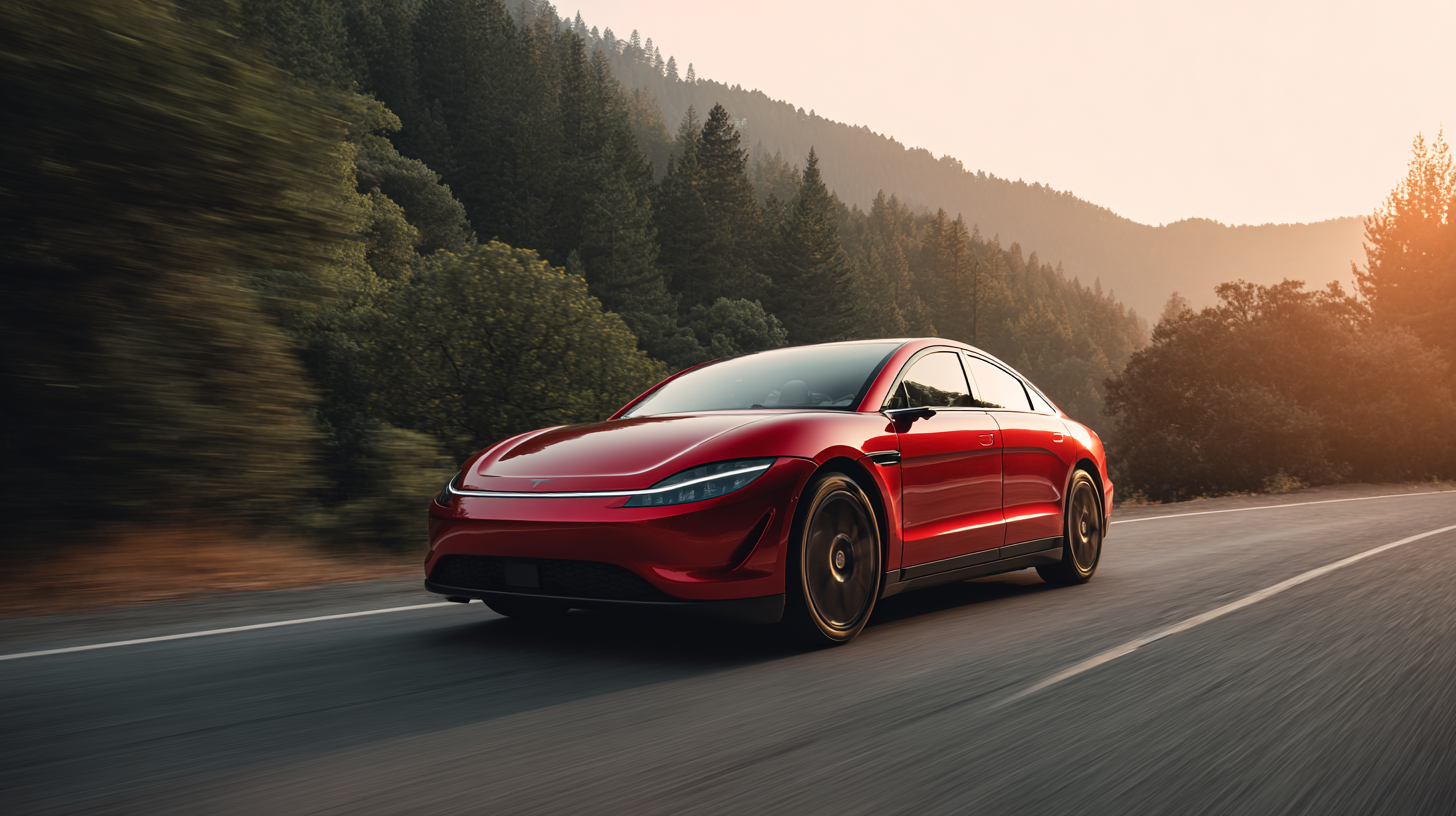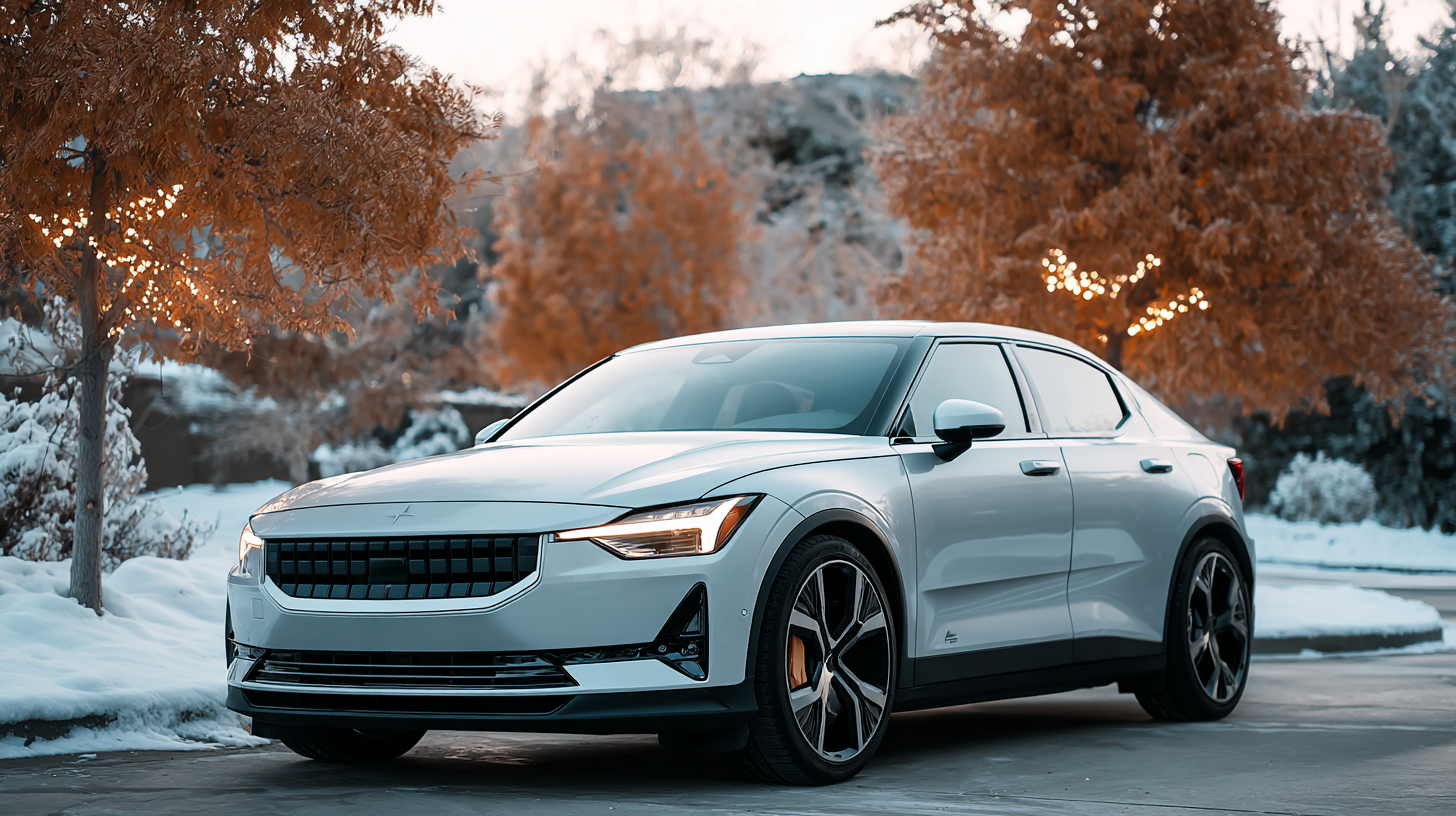Sorry. We did not find anything.
Emerging Trends: How Best New Electric Cars Are Shaping the Global Automotive Landscape in 2023
As the automotive industry shifts towards a more sustainable future, the emergence of new electric cars is revolutionizing the global landscape in 2023. These innovative vehicles not only promise to reduce our carbon footprint but also come packed with cutting-edge technologies that enhance driving experiences. With the rise of electric mobility, it's essential for manufacturers and stakeholders to identify and collaborate with high-quality suppliers who can meet the demand for advanced components and efficient production processes. This blog will explore the key trends shaping the electric car market and provide insights on how to successfully navigate the complexities of sourcing top-notch suppliers in this rapidly evolving sector. As we delve deeper into the world of new electric cars, we will uncover what makes a supplier truly exceptional and how their contributions are integral to driving the automotive industry forward.

The Rise of Chinese Manufacturers: Dominating the Electric Vehicle Market
As we delve into 2023, the global automotive landscape is undeniably shaped by the rapid rise of Chinese manufacturers dominating the electric vehicle (EV) market. Companies like BYD, NIO, and Xpeng have emerged as titans, boasting advanced technology, competitive pricing, and an expansive range of offerings that cater to diverse consumer needs. This shift signifies a new era in which innovation is not solely driven by established Western brands, but also by agile newcomers that are redefining what consumers can expect from electric mobility.
Additionally, the emphasis on sustainability within China has catalyzed significant investments in battery technology and infrastructure. This investment underpins their ability to not only produce vehicles at scale but also to ensure that their EVs are equipped with cutting-edge features like autonomous driving and smart connectivity. With the world's largest market at their disposal, these manufacturers are not only meeting the domestic demand but are also increasingly looking to global markets, making electric cars more accessible than ever. As the competition heats up, other global players must adapt swiftly to maintain their foothold in an industry that is swiftly evolving under the influence of Chinese innovation.
Innovative Technologies Driving the Future of Electric Cars
The automotive industry is undergoing a revolutionary transformation, driven by innovative technologies that are reshaping the future of electric vehicles (EVs). As reported by the International Energy Agency (IEA), global electric car sales surged to over 6.6 million units in 2021, marking a remarkable 108% increase from the previous year. This trend is projected to continue, with forecasts predicting that electric cars will account for 30% of all vehicle sales by 2030. Such growth is largely attributed to advancements in battery technology, which have enhanced the range and efficiency of electric vehicles, making them a more viable option for consumers.
In addition to battery developments, the integration of smart technologies is driving the evolution of electric cars. Features such as advanced driver-assistance systems (ADAS) and connectivity solutions are becoming standard, significantly improving user experience. According to a report by McKinsey & Company, the market for automotive software is expected to reach $50 billion by 2030, highlighting the importance of tech integration in attracting modern consumers. As manufacturers continue to innovate and enhance their EV offerings, the automotive landscape in 2023 is poised to become increasingly electrified, paving the way for a more sustainable and technologically advanced future.

Global Trends Influencing Electric Vehicle Adoption in 2023
The global automotive landscape in 2023 is witnessing significant shifts towards electric vehicle (EV) adoption, influenced by a myriad of factors. As highlighted in recent studies, nearly 14 million electric vehicles have been registered globally, reflecting a gradual yet consistent movement towards electrification. This growth is expected to accelerate, with projections suggesting that EV sales could reach 16.7 million units in 2025. Such figures underscore the escalating consumer interest in sustainable automotive solutions and highlight the pivotal role of infrastructure expansion in facilitating this transition.

A key driver of EV adoption is the improvement in public charging infrastructure. The number of public chargers worldwide has more than doubled since 2022, surpassing 5 million, which significantly enhances the accessibility of electric mobility. Moreover, insights from various regional markets indicate that consumer concerns about connectivity and vehicle performance continue to shape buying preferences. Education about the benefits of electric vehicles and supportive legislation further promote this shift, indicating a robust momentum towards electrification that is expected to influence automotive trends well into the coming years.
The Impact of Sustainable Practices in China's Electric Vehicle Production
China's electric vehicle (EV) production is at the forefront of sustainable practices, setting a precedent for the global automotive industry. With the government enforcing stringent environmental policies and offering incentives for greener technologies, manufacturers have adopted innovative approaches to reduce their carbon footprint. This commitment extends to the sourcing of raw materials, with an increasing focus on sustainable mining practices and recycling of batteries. As a result, Chinese EV companies are not only shifting towards renewable energy sources but also leading the charge in closed-loop production systems to minimize waste.
Additionally, the integration of cutting-edge technology in manufacturing processes underscores China's ambition to enhance sustainability. Automation and artificial intelligence are being employed to optimize energy use and enhance efficiency throughout the production line. Companies are increasingly investing in research and development to create energy-efficient vehicles that incorporate recyclable materials, thus further solidifying their commitment to the environment. As China's EV industry continues to evolve, it is shaping a new standard for sustainable practices that could influence global competitors and redefine the automotive landscape in 2023 and beyond.
Consumer Preferences and Their Role in Shaping Electric Automotive Design
As the automotive landscape continues to evolve in 2023, consumer preferences play a pivotal role in shaping the design of electric vehicles (EVs). With an increasing share of battery-electric vehicles (BEVs) on the road, the need for robust public charging infrastructure has become paramount. Consumers are not only concerned about sustainability but also seek convenience and accessibility in charging options. Their preferences are influencing manufacturers to invest in innovative solutions that enhance the overall user experience, making EVs more appealing for everyday drivers.
Moreover, the drive towards sustainability is transforming the luxury vehicle market. As environmental concerns remain a top motivator for EV adoption, luxury brands are compelled to adapt their offerings to reflect these values. Expecting EVs to account for a significant portion of the luxury segment by 2030, manufacturers are redefining what luxury means in the context of electric mobility. Embracing advanced data-driven sustainable designs, they are aligning their products with consumers' demand for energy efficiency and eco-friendly technologies, ensuring that the future of automotive design resonates with the evolving values of today’s consumers.
